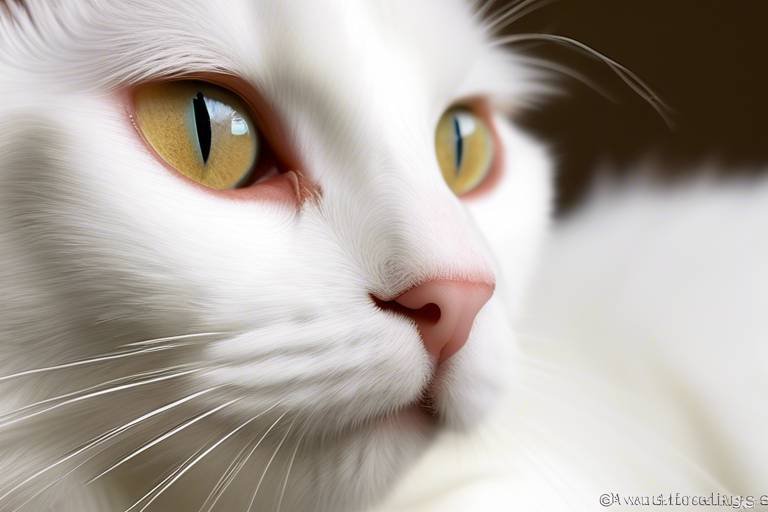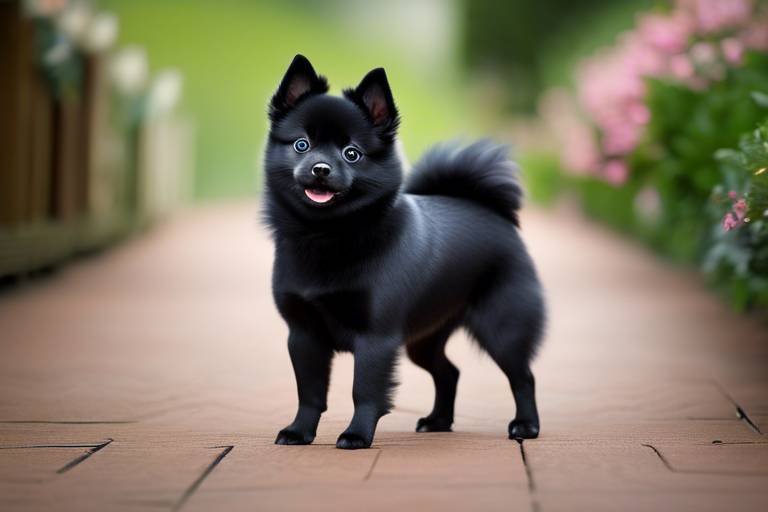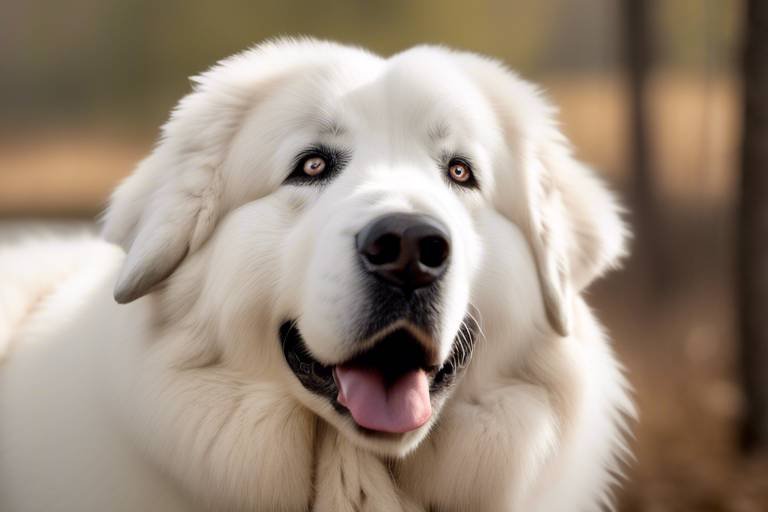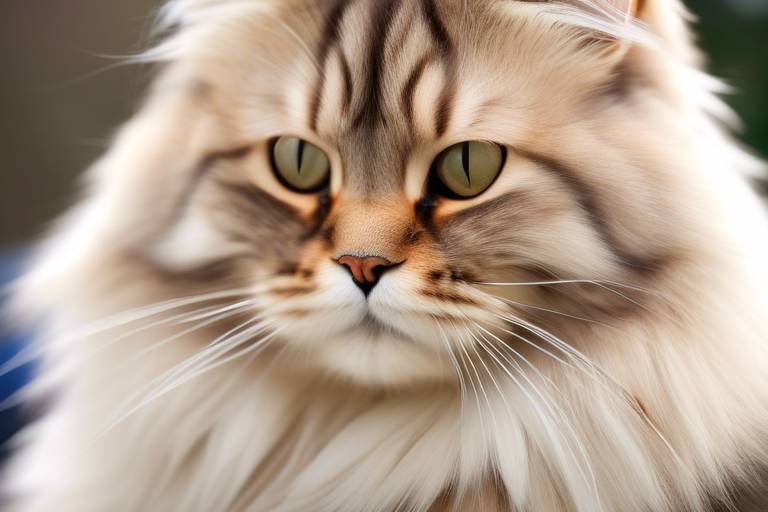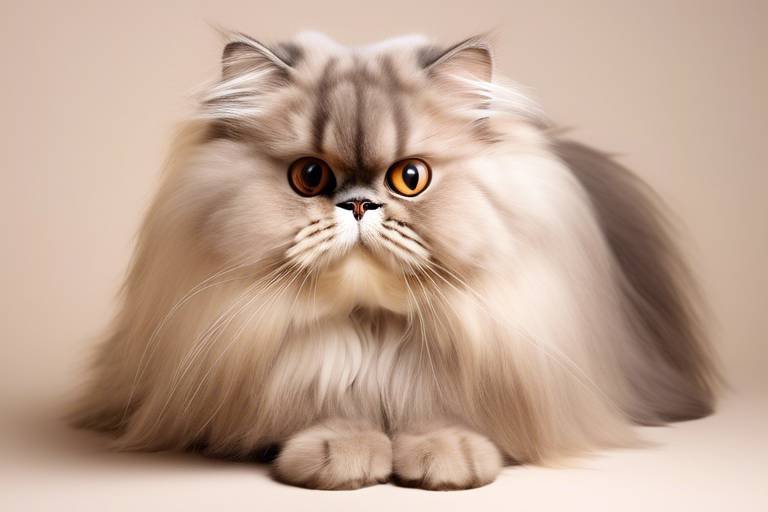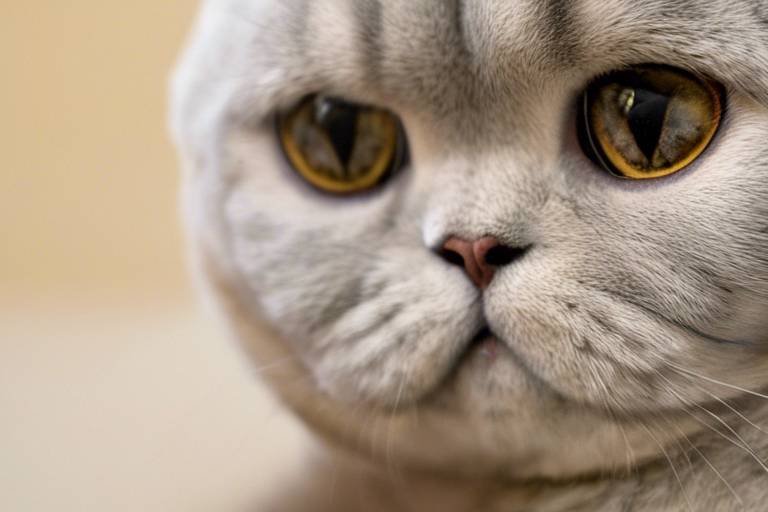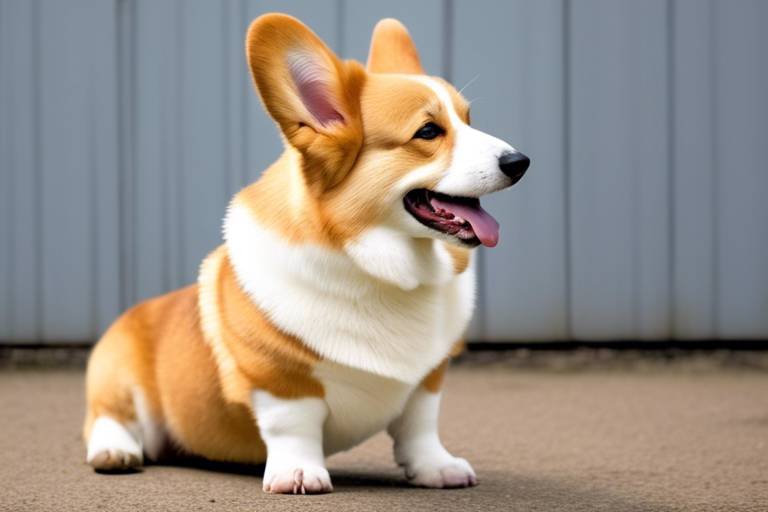The Affectionate Nature of the Turkish Van
The Turkish Van cat is not just another feline; it’s a bundle of love wrapped in fur. Known for its affectionate personality, this breed has captured the hearts of cat enthusiasts around the world. Imagine coming home after a long day, and there, waiting for you at the door, is a fluffy companion ready to shower you with attention and affection. That’s the essence of the Turkish Van! Their playful antics and loving nature make them more than just pets; they become cherished family members.
What makes the Turkish Van stand out is not just its looks but its unique bond with humans. These cats thrive on interaction and are known to follow their owners around the house, seeking companionship and warmth. If you’re looking for a cat that will curl up next to you on the couch, playfully paw at your feet, or even join you in the bathtub (yes, they love water!), then the Turkish Van is the perfect choice. Their affectionate nature is truly captivating, making them a beloved companion for many.
Beyond their charming behavior, the Turkish Van is also a breed with a rich history. Originating from the Lake Van region of Turkey, they were not only admired for their beauty but also for their remarkable swimming abilities. This unique trait adds another layer to their affectionate personality, as they often display a playful spirit that is infectious. Whether they are chasing a toy or engaging in a friendly game of hide and seek, their energy and zest for life make them a joy to have around.
In essence, the Turkish Van cat is a perfect blend of beauty, playfulness, and affection. They not only bring joy into your life but also create a special bond that can last a lifetime. If you’re considering adding a furry friend to your family, the Turkish Van might just be the affectionate companion you’ve been searching for!
- Are Turkish Vans good with children? Yes, their playful and affectionate nature makes them great companions for children.
- Do Turkish Vans require special grooming? Their semi-long coat is relatively low maintenance, but regular brushing is recommended to prevent matting.
- Can Turkish Vans be left alone? While they enjoy human interaction, they can adapt to being alone for a few hours if they have toys and activities to keep them engaged.
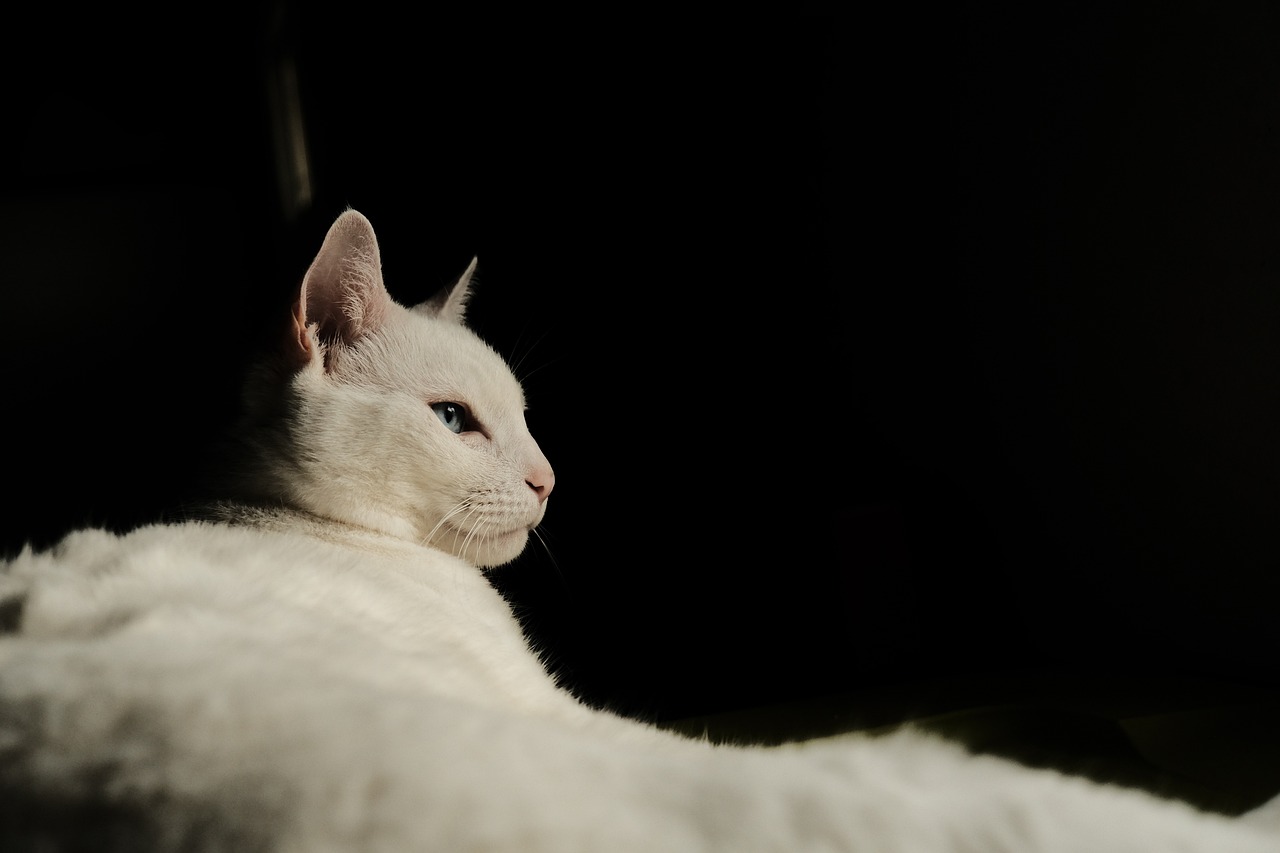
Origins of the Turkish Van
The Turkish Van cat is not just a pretty face; it has a rich and fascinating history that traces back to the stunning Lake Van region in Turkey. This area, known for its breathtaking landscapes and unique culture, is where these cats were first discovered and revered. The Turkish Van is often celebrated not only for its striking appearance but also for its remarkable swimming ability, which is quite rare among cat breeds. Imagine a fluffy feline paddling through the water with grace and agility—it's a sight that truly embodies the spirit of this breed!
Historically, the Turkish Van was considered a treasure by the locals, who admired its beauty and playful nature. These cats were often found roaming around the shores of Lake Van, showcasing their natural affinity for water. The locals believed that the cats brought good fortune and prosperity, leading to their revered status in the region. Over time, the Turkish Van’s affectionate personality and lively demeanor endeared them to many, establishing a deep bond between the cats and the people of Turkey.
As the Turkish Van gained popularity, it made its way beyond the borders of Turkey, captivating cat enthusiasts worldwide. The breed was officially recognized in the 1980s, and since then, it has become a cherished companion for many families. The Turkish Van’s history is a beautiful tapestry woven with tales of admiration, affection, and a unique connection to its environment. It’s no wonder that these cats are often described as “the swimming cats” due to their love for water, a trait that sets them apart from other breeds.
In summary, the origins of the Turkish Van are steeped in culture and admiration. From their playful antics by the lakeside to their affectionate interactions with humans, these cats have carved out a special place in the hearts of many. Their history is a testament to the bond between humans and animals, reminding us of the joy and companionship that pets can bring into our lives.
- What makes the Turkish Van unique?
The Turkish Van is unique due to its love for water, distinctive color patterns, and affectionate personality. - Are Turkish Vans good with children?
Yes, Turkish Vans are known for their playful and social nature, making them great companions for children. - Do Turkish Vans require special care?
While they have a semi-long coat, regular grooming helps maintain their fur. Their playful energy also means they need plenty of playtime!
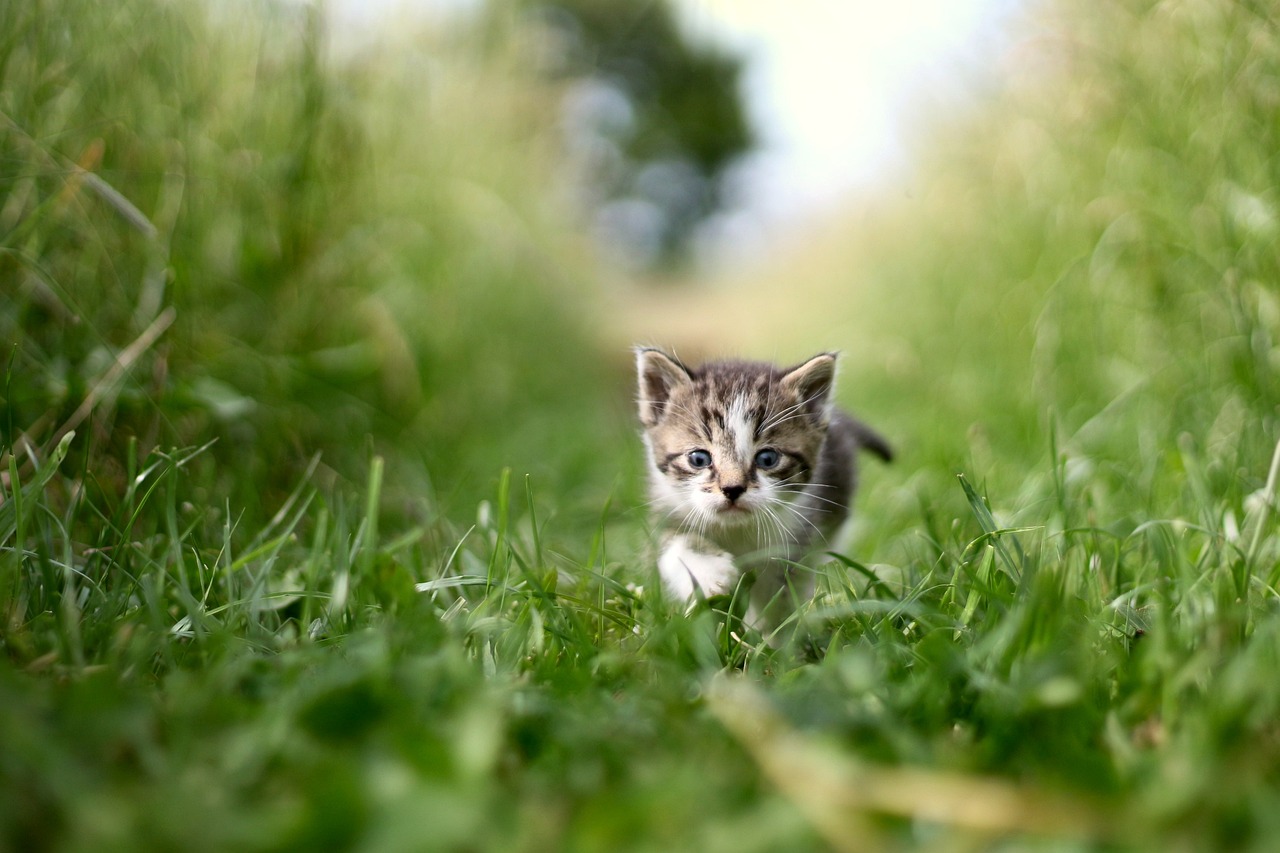
Physical Characteristics
The Turkish Van is a breed that not only captivates the eye but also embodies a playful spirit through its distinctive physical traits. Known for its striking appearance, this breed boasts a large, muscular frame that often leaves admirers in awe. Standing out among other cats, the Turkish Van typically weighs between 10 to 20 pounds, showcasing a robust build that is not only appealing but also indicative of its energetic personality. Their size and stature make them an engaging companion, as they are not just lap cats; they are active participants in family life, always ready to play or cuddle.
One of the most remarkable features of the Turkish Van is its semi-long, water-resistant coat, which is typically a brilliant white adorned with colored markings, usually on the head and tail. This unique coat not only contributes to their beauty but also reflects their historical affinity for water, as they are known to enjoy swimming. Imagine a cat that not only loves to chase after toys but also splashes around in a pool! Their coat requires regular grooming to maintain its luster and prevent matting, but the effort is well worth it for such a stunning feline.
The color patterns of the Turkish Van are as varied as they are beautiful. While the base color is predominantly white, the markings can come in a variety of shades, including red, cream, black, and blue. This striking contrast makes them visually stunning and adds to their playful personality. The combination of their coat and color patterns creates a unique look that is instantly recognizable among cat breeds.
Equally captivating are the Turkish Van's eyes, which can be blue, amber, or even odd-eyed, where one eye is a different color from the other. This diversity in eye color not only enhances their beauty but also reflects the vibrant and affectionate spirit that defines this breed. The eyes of a Turkish Van are often described as expressive, capable of conveying a range of emotions from curiosity to affection, making interactions with them all the more engaging.
With a body structure that is both muscular and agile, the Turkish Van is built for play. Their strong legs and large paws allow them to leap and bound with grace, making them natural climbers and explorers. This physicality supports their playful nature, as they love to engage in interactive games that challenge their agility. When you watch a Turkish Van at play, it's like witnessing a small athlete in action, full of energy and enthusiasm. Their physical characteristics not only make them appealing as pets but also enhance their affectionate demeanor, as they often seek out human companionship during their playful antics.
Coat and Colors
The Turkish Van cat is truly a sight to behold, thanks in large part to its stunning coat and unique color patterns. Their semi-long, water-resistant fur is not just for show; it's a functional trait that allows these cats to thrive in their native environment around Lake Van in Turkey. Imagine a cat that not only looks majestic but is also equipped to take a dip in water! Yes, you heard that right—Turkish Vans are known for their love of swimming, which is quite rare among felines. Their coats are predominantly white, adorned with patches of color that can vary widely, from shades of cream to rich reds and deep blacks.
These charming color patterns create a striking visual appeal. The most common pattern is what is known as the Van pattern, where color is primarily on the head and tail, while the body remains predominantly white. This unique look not only enhances their allure but also contributes to their affectionate nature. When you see a Turkish Van, it's hard not to feel an immediate connection; their beauty draws you in, much like a captivating painting that you can't help but admire.
One of the most fascinating aspects of the Turkish Van's appearance is the variety of eye colors they can possess. These cats can have:
- Blue eyes that sparkle like sapphires.
- Amber eyes that glow with warmth and affection.
- Odd-eyed combinations, where one eye is blue and the other amber, adding an element of mystique.
This diversity in eye color not only enhances their beauty but also reflects the vibrant personality of the Turkish Van. Their expressive eyes seem to communicate their emotions, making it easy to see their affection and playfulness shining through. It's almost as if they have a secret language that speaks directly to your heart!
In terms of grooming, the Turkish Van's coat requires regular brushing, especially during shedding seasons. Their fur is designed to repel water, which means they tend to stay relatively clean. However, a little extra care goes a long way in maintaining that luxurious appearance. Think of it as pampering a beloved friend; regular grooming sessions can become a bonding experience, deepening the affectionate relationship between you and your feline companion.
In summary, the Turkish Van's coat and colors are not just aesthetically pleasing but also play a significant role in their personality. Their unique patterns and vibrant eye colors are a reflection of their affectionate nature, making them not just a pet but a cherished member of the family.
- Are Turkish Vans good with children?
Yes, Turkish Vans are known for their playful and affectionate nature, making them great companions for children. - Do Turkish Vans like to swim?
Absolutely! Turkish Vans are one of the few cat breeds that enjoy swimming. - How much grooming do they require?
They require regular brushing, especially during shedding seasons, to keep their coat in top condition.
Eye Color Variations
The Turkish Van is not just celebrated for its stunning coat and playful demeanor; one of its most enchanting features is its . These cats can possess a range of eye colors that captivate anyone who gazes into their eyes. The most common eye colors found in Turkish Vans include blue, amber, and the rare odd-eyed combination, where one eye is blue and the other is amber. This unique trait adds an extra layer of charm to their affectionate nature, making them even more appealing as companions.
The blue-eyed Turkish Van is often associated with a serene and calm personality, embodying the tranquil waters of their native Lake Van. On the other hand, the amber-eyed individuals are known for their warm and playful spirit, reflecting the vibrant energy that these cats possess. The odd-eyed Turkish Van is particularly fascinating, as it symbolizes a balance between the calmness of blue and the warmth of amber, showcasing the multifaceted personality that these cats can have.
To give you a clearer picture of these eye colors, here’s a simple breakdown:
| Eye Color | Description | Personality Traits |
|---|---|---|
| Blue | Bright, clear blue | Calm, serene |
| Amber | Warm, golden hue | Playful, energetic |
| Odd-eyed | One blue, one amber | Balanced, multifaceted |
These eye colors not only enhance the Turkish Van's physical beauty but also serve as a window into their affectionate and lively spirits. When you interact with a Turkish Van, their mesmerizing eyes often seem to communicate a deep emotional connection, making you feel like you are truly understood. It's no wonder that cat enthusiasts are drawn to this breed, as their affectionate nature is beautifully complemented by their striking eye color variations.
- What is the significance of the eye color in Turkish Vans?
Eye color can reflect the personality traits of the cat. For example, blue-eyed cats are often calm, while amber-eyed ones are more energetic. - Can Turkish Vans have mixed eye colors?
Yes, some Turkish Vans have odd-eyed variations, which is a unique and charming trait. - How do I care for a Turkish Van's eyes?
Regular veterinary check-ups are essential to ensure their eyes remain healthy, especially if they have unique colors.
Body Structure
The Turkish Van cat is not just a pretty face; its plays a significant role in its overall personality and behavior. This breed is known for its muscular build and large frame, which gives it a robust appearance. When you first lay eyes on a Turkish Van, you might be struck by its impressive size, often weighing between 10 to 20 pounds. This substantial weight is not just for show; it reflects the cat's active lifestyle and playful nature.
One of the most fascinating aspects of the Turkish Van's body structure is its strong bone structure. The cat possesses a broad chest and a long, bushy tail, which not only enhances its physical appeal but also contributes to its agility. These features allow Turkish Vans to be adept swimmers, a trait that is quite rare among cats. Just imagine a fluffy ball of energy diving into water with grace! It’s a sight that truly captures the essence of this breed's playful spirit.
Additionally, the Turkish Van has a distinctive head shape, characterized by a slightly rounded skull and a short nose. This unique facial structure gives the cat an adorable, expressive look that many owners find irresistible. Their ears are medium-sized and have a slight tuft at the tips, adding to their charming appearance. The combination of these physical traits not only makes them stunning but also supports their affectionate nature, as their expressive faces often communicate their feelings and desires to their human companions.
In terms of overall health, the Turkish Van is generally a robust breed, but like all cats, they can benefit from proper nutrition and regular veterinary check-ups. A well-balanced diet will help maintain their muscular physique and keep their energy levels high, ensuring they remain the playful, affectionate companions that cat lovers adore. When you consider bringing a Turkish Van into your home, you’re not just gaining a pet; you’re welcoming a dynamic and loving member of the family.
- How much exercise does a Turkish Van need?
Turkish Vans are highly energetic and require daily playtime and exercise to keep them happy and healthy. Interactive toys and games are great for this breed. - Are Turkish Vans good with children?
Yes, Turkish Vans are known for their affectionate nature and playful demeanor, making them excellent companions for children. - Do Turkish Vans like water?
Interestingly, Turkish Vans are known as the "swimming cats" and often enjoy playing in water, so don’t be surprised if your cat takes a dip! - How can I train my Turkish Van?
Using positive reinforcement techniques, such as treats and praise, can effectively train Turkish Vans, enhancing their affectionate interactions with you.
Behavioral Traits
The Turkish Van is not just a pretty face; it's a bundle of energy and affection wrapped in a fluffy coat! These cats are known for their lively, engaging personalities that can light up any room. Imagine coming home after a long day to a furry friend who is not only excited to see you but also eager to play and cuddle. That's the Turkish Van for you! Their affectionate nature often manifests in a strong bond with their human companions, making them feel like part of the family.
One of the standout features of the Turkish Van's behavior is its playful spirit. These cats are like little furry acrobats, always ready to leap into action. They love interactive games that challenge their agility and intelligence. Whether it’s chasing after a feather toy or playing hide and seek with their owners, their playful antics are sure to bring a smile to your face. It's almost as if they have a built-in entertainment system, and they thrive on the attention and interaction that comes with playtime.
But it’s not all about play; Turkish Vans are also incredibly affectionate. They are known to follow their owners around the house, always wanting to be part of whatever you're doing. This breed has a knack for sensing when you need a little extra love, often curling up beside you or even in your lap, providing warmth and comfort. Their desire for physical closeness is not just a quirk; it’s a testament to their affectionate nature. It's heartwarming to see how they seek out companionship, often nuzzling against their humans or purring contentedly as they bask in your presence.
Furthermore, the Turkish Van's social nature means they generally get along well with children and other pets. They thrive in a lively household where they can engage with various family members. Their playful demeanor makes them excellent companions for kids, as they are patient and enjoy the chaos that comes with a busy home. However, it’s essential to provide them with early socialization experiences to ensure they grow up to be well-adjusted adults.
In summary, the Turkish Van's behavioral traits make it a unique and beloved companion. Their playful energy, affectionate demeanor, and social nature create a delightful mix that can enrich the lives of those lucky enough to share their home with them. If you're looking for a cat that will keep you entertained while showering you with love, the Turkish Van is a fantastic choice!
- Are Turkish Vans good with children?
Yes! Turkish Vans are known for their playful and affectionate nature, making them great companions for children. - Do Turkish Vans require a lot of grooming?
While they have a semi-long coat, Turkish Vans are relatively low maintenance. Regular brushing will help keep their coat healthy. - Can Turkish Vans be left alone for long periods?
They thrive on human interaction, so it's best to avoid leaving them alone for extended periods. Consider adopting another pet for companionship. - Are Turkish Vans vocal cats?
Yes, they can be quite vocal when they want attention or to express their needs, adding to their charming personality!
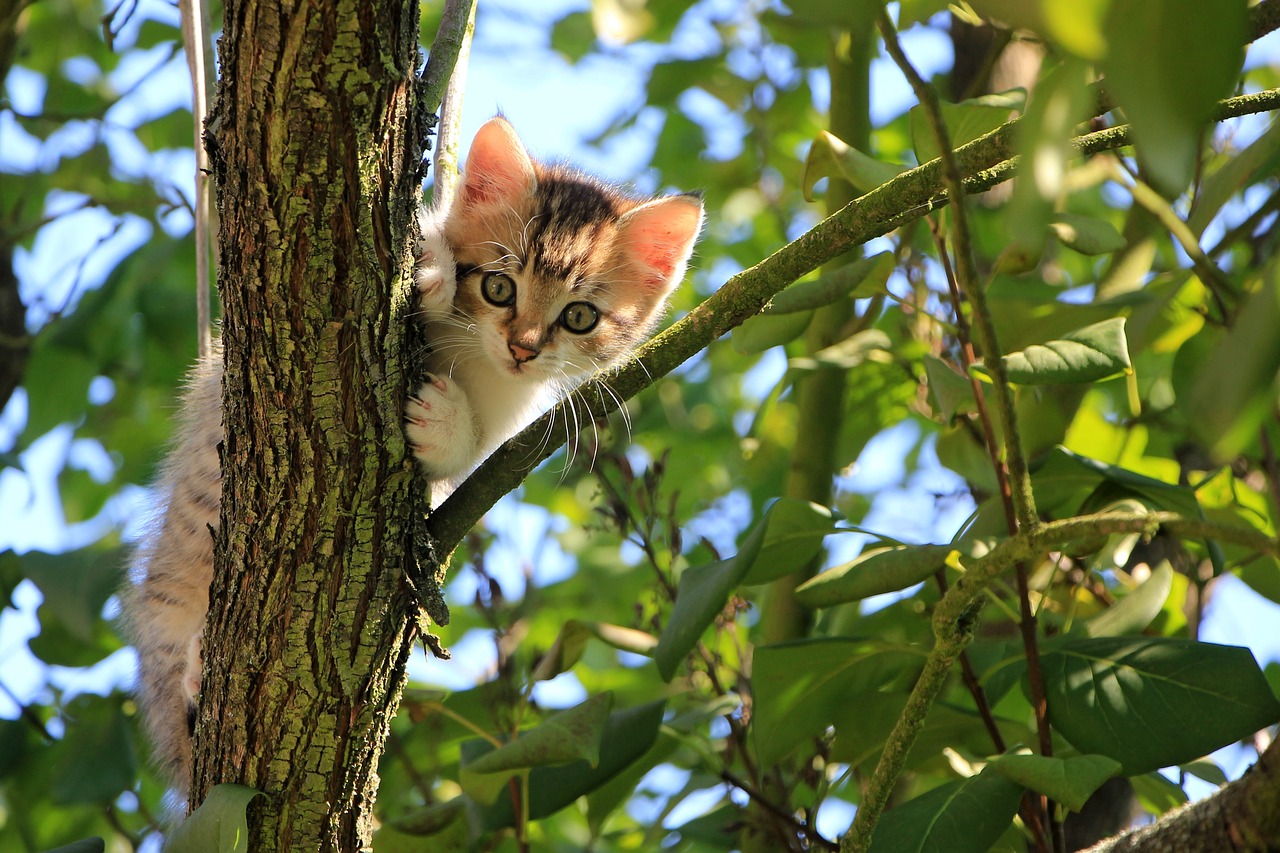
Affectionate Interaction with Humans
The Turkish Van cat is not just a pet; it’s a companion that thrives on human interaction. Imagine coming home after a long day, and there’s your Turkish Van, eagerly waiting at the door, tail held high, ready to shower you with affection. These cats have an innate ability to bond with their owners, making them feel cherished and loved. They often follow their humans around the house, wanting to be involved in whatever you’re doing. This affectionate nature is one of the many reasons why they are adored by cat enthusiasts everywhere.
What's truly fascinating is how the Turkish Van's personality reflects its need for companionship. They are known to be social butterflies, often engaging in playful antics that not only entertain themselves but also bring joy to their owners. Whether it’s chasing after a feather toy or pouncing on a ball, their playful demeanor is a testament to their affectionate spirit. These cats not only seek affection but also reciprocate it in the most heartwarming ways, like curling up next to you during a movie or gently nudging your hand for a pet.
Furthermore, Turkish Vans are incredibly intuitive. They can sense when you’re feeling down or stressed, and they often respond by snuggling up closer to you, offering their warmth and comfort. This emotional intelligence is what sets them apart from other breeds. They seem to know when to be playful and when to be a source of comfort, making them the perfect companions for both playful afternoons and quiet evenings alike.
To enhance this affectionate bond, regular interaction is key. Engaging in activities like playtime, grooming, or simply lounging together can significantly strengthen your connection. Here are some tips to foster this affectionate interaction:
- Daily Playtime: Schedule at least 15-30 minutes of interactive play each day. Use toys that mimic prey, like feather wands or laser pointers, to stimulate their natural hunting instincts.
- Grooming Sessions: Turkish Vans have a semi-long coat that requires regular grooming. Use this time to bond by gently brushing them while talking softly.
- Quality Cuddle Time: Set aside time each day to simply cuddle with your Van. They thrive on physical contact, and this will make them feel secure and loved.
In conclusion, the affectionate interaction between Turkish Vans and their humans is a beautiful dance of love, playfulness, and companionship. They are not just cats; they are loving members of the family who bring joy and warmth into our lives. So, if you’re considering a pet that will not only be your furry friend but also your loving companion, the Turkish Van might just be the perfect match for you!
- Do Turkish Vans get along with children?
Yes, they are known to be very friendly and affectionate towards children, making them great family pets. - How much exercise do Turkish Vans need?
They are energetic cats and require regular playtime to keep them happy and healthy. - Are Turkish Vans vocal cats?
They can be quite vocal, often communicating their needs and desires through a variety of sounds.
Playfulness and Energy
The Turkish Van cat is a bundle of energy, known for its playful antics that can bring joy to any household. Imagine a furry little tornado zooming around your living room, darting after toys, and leaping into the air with the grace of an acrobat. Their playful nature is not just a personality trait; it's a fundamental part of what makes them such delightful companions. These cats thrive on interaction, and their energy levels can keep you entertained for hours.
One of the most charming aspects of a Turkish Van's playfulness is their love for water. Yes, you read that right! Unlike most cats, Turkish Vans are known for their affinity for swimming. This unique behavior can lead to some hilarious moments, like when they decide to join you in the bathtub or splash around in a water bowl. It's as if they possess an innate sense of adventure that encourages them to explore their surroundings, making every day an opportunity for fun.
When it comes to playtime, Turkish Vans enjoy a variety of activities. Here are some of their favorites:
- Interactive Toys: They love chasing feather wands, laser pointers, and anything that moves. Engaging them with toys can stimulate their hunting instincts.
- Fetch: Surprisingly, many Turkish Vans enjoy a good game of fetch. They’ll bring back crumpled paper balls or small toys, eager for you to throw them again.
- Climbing and Exploring: These cats are natural climbers. Providing them with cat trees or shelves allows them to indulge in their adventurous spirit while keeping them physically active.
Moreover, their playfulness is often accompanied by a strong desire to bond with their human companions. They thrive on social interaction, so don't be surprised if your Turkish Van follows you from room to room, wanting to be part of the action. This affectionate behavior not only strengthens your relationship but also ensures that they remain happy and healthy.
In summary, the playfulness and energy of the Turkish Van make them an engaging and entertaining pet. Their unique traits, combined with their affectionate nature, create a wonderful dynamic for any family. If you're looking for a cat that will keep you on your toes and fill your home with laughter, the Turkish Van might just be the perfect match for you.
Q1: Are Turkish Vans good with children?
A1: Yes! Turkish Vans are known for their friendly and playful nature, making them great companions for children. They enjoy interactive play and can be quite tolerant of young ones.
Q2: Do Turkish Vans require a lot of exercise?
A2: While they are energetic, they can get their exercise through playtime with their owners. Regular interactive play sessions are essential to keep them happy and healthy.
Q3: Can Turkish Vans be left alone for long periods?
A3: They do enjoy companionship and can get lonely if left alone for too long. It's best to have someone around or provide them with plenty of toys to keep them entertained.
Q4: How do I keep my Turkish Van entertained?
A4: Engage them with a variety of toys, climbing structures, and interactive games. Regular playtime is crucial to keep their minds and bodies stimulated.
Cuddling and Comfort
The Turkish Van is not just a cat; it’s a living, breathing bundle of affection that thrives on warmth and closeness. Imagine coming home after a long day, and there, waiting for you, is your Turkish Van, ready to shower you with love. These cats have a unique knack for seeking out the coziest spots in your home, often curling up in your lap or snuggling beside you on the couch. Their gentle purring can be incredibly soothing, creating a serene atmosphere that feels like a warm hug. It's almost as if they have an innate understanding of when you need a little extra comfort.
When it comes to cuddling, Turkish Vans are champions. They don’t just want to be near you; they want to be *with* you. This affectionate breed often seeks out physical contact, whether it’s a gentle nuzzle against your leg or a full-on cuddle session. Their soft, semi-long fur feels like a plush blanket, inviting you to stroke and pet them for hours. This tactile connection not only strengthens your bond but also provides them with a sense of security and warmth. It’s a beautiful relationship built on mutual affection, where both cat and owner find solace in each other’s presence.
Moreover, the Turkish Van's love for cuddling goes beyond mere companionship. They often display their affection through playful antics, inviting you to join in their fun. Whether it’s chasing after a feather toy or playfully pouncing on a string, their energy is infectious. After a good play session, they’ll often come back to you for a well-deserved cuddle, making it clear that they value your company above all else. This cycle of play and affection creates a nurturing environment that is beneficial for both you and your furry friend.
In essence, the cuddling behavior of the Turkish Van is a reflection of their affectionate nature. They thrive on human interaction, making them ideal pets for those who love to share their space with a loving companion. Their desire for closeness not only fulfills their emotional needs but also enriches the lives of their owners. So, if you’re looking for a cat that will curl up beside you while you read a book or watch TV, the Turkish Van might just be the perfect fit for you.
- Do Turkish Vans like to cuddle?
Yes! Turkish Vans are known for their affectionate nature and love to cuddle with their owners. - How can I encourage my Turkish Van to cuddle more?
Creating a comfortable and inviting space, along with regular playtime, can encourage cuddling behavior. - Are Turkish Vans good with children?
Yes, they are playful and social, making them great companions for families with children. - What is the best way to bond with my Turkish Van?
Spend quality time playing, grooming, and cuddling to strengthen your bond with your Turkish Van.
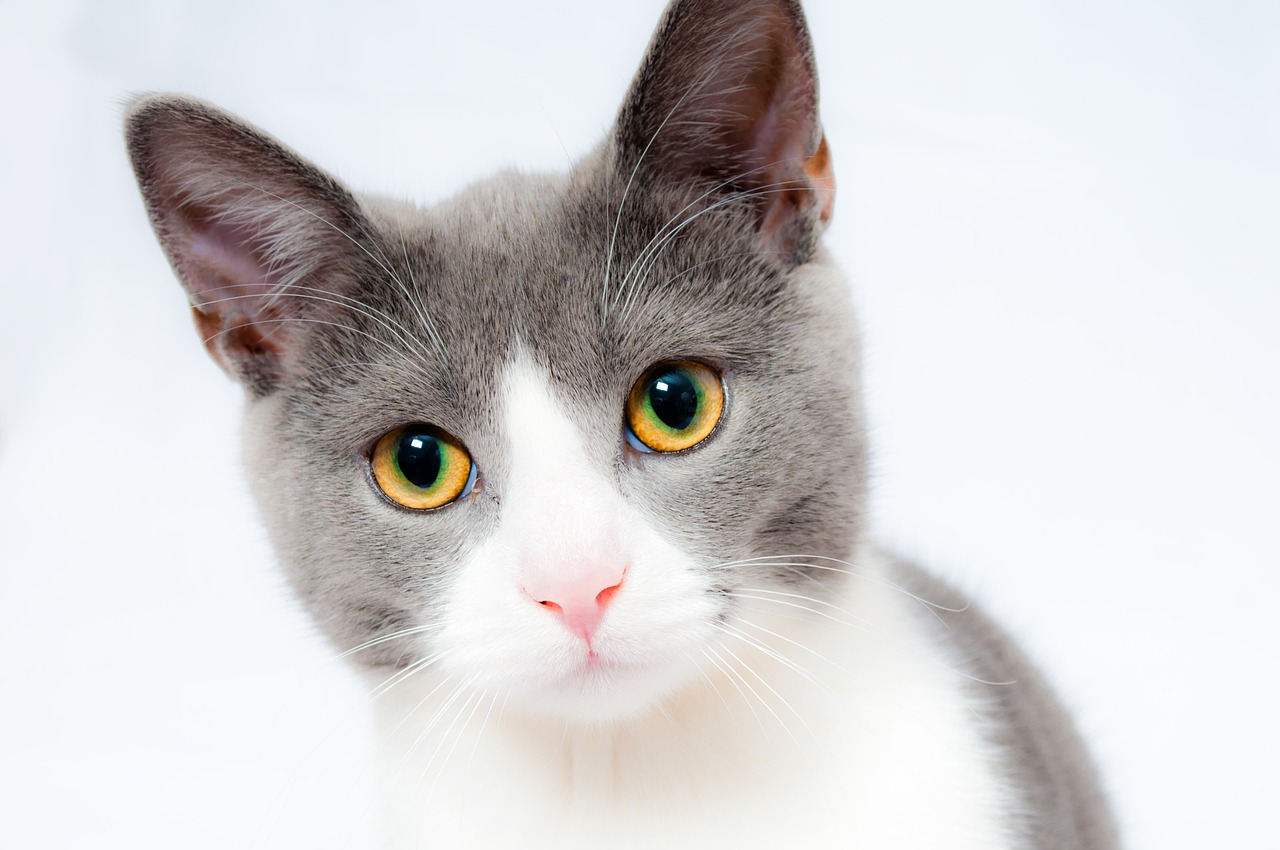
Training and Socialization
The Turkish Van is not just another pretty face in the feline world; it’s a cat that thrives on interaction and engagement. Training and socialization are crucial for this breed, as they help to cultivate its affectionate nature and ensure it becomes a well-rounded companion. These cats are known for their intelligence and responsiveness, making them relatively easy to train compared to some other breeds. However, it's essential to approach training with a positive mindset and an understanding of their unique personality traits.
When it comes to training, using positive reinforcement techniques is key. This means rewarding your Turkish Van with treats, praise, or playtime whenever they perform a desired behavior. For example, if your cat successfully uses the litter box or responds to its name, shower it with affection and goodies. This not only encourages good behavior but also strengthens the bond between you and your furry friend. Remember, patience is vital; training isn’t an overnight process, and every small success deserves recognition.
Socialization is another critical aspect of raising a Turkish Van. These cats are naturally curious and social, so introducing them to various environments, people, and even other pets can greatly enhance their affectionate nature. Start socializing your kitten early, exposing it to different sounds, smells, and experiences. This can include inviting friends over, taking your cat for a walk in a secure harness, or even introducing it to gentle, friendly dogs. The more experiences your Turkish Van has, the more confident and affectionate it will become.
Here’s a quick overview of some effective training and socialization tips:
- Start Early: Begin training and socialization as soon as you bring your Turkish Van home.
- Use Positive Reinforcement: Reward desired behaviors to encourage repetition.
- Expose to Different Environments: Safely introduce your cat to various settings and people.
- Be Patient: Understand that every cat learns at its own pace.
Additionally, consider enrolling your Turkish Van in a training class or seeking the help of a professional trainer if needed. These classes often provide a structured environment for both you and your cat to learn and socialize with others. Remember, the goal is not just to teach commands but to nurture a loving and affectionate relationship that lasts a lifetime.
In conclusion, training and socialization are vital for the Turkish Van's development as a loving companion. By employing positive reinforcement and exposing them to various experiences, you can help your cat flourish into a confident and affectionate member of your family.
Q: How long does it take to train a Turkish Van?
A: Training can vary from cat to cat, but with consistent positive reinforcement, you may start seeing results within a few weeks.
Q: Are Turkish Vans good with children?
A: Yes! Turkish Vans are known for their playful and affectionate nature, making them great companions for children.
Q: Can Turkish Vans get along with other pets?
A: With proper socialization, Turkish Vans can coexist peacefully with other pets, including dogs and other cats.
Positive Reinforcement Techniques
When it comes to training your Turkish Van, are your best friends. This approach is not just effective; it’s also a fantastic way to strengthen the bond between you and your furry companion. Imagine this: instead of scolding your cat for not following a command, you shower it with praise and treats when it does something right. It’s like throwing a mini celebration for your cat every time it behaves well! This creates a joyful learning environment where your Turkish Van feels loved and appreciated.
One of the most important aspects of positive reinforcement is timing. You want to reward your cat immediately after it performs the desired behavior. This way, it associates the reward with the action. For example, if your Turkish Van sits on command, give it a treat right then and there, along with a cheerful "Good job!" This immediate feedback is crucial for effective training.
But what kinds of rewards work best? Here are some popular options:
- Treats: Small, tasty snacks can work wonders. Just make sure they are healthy and suitable for your cat's diet.
- Affection: Sometimes, all your cat wants is a good scratch behind the ears or a cozy cuddle session. Your affection can be a powerful motivator.
- Toys: Engaging your cat with its favorite toy can also serve as a reward. A quick game of chase can be a delightful treat for your playful Van.
Moreover, consistency is key. Make sure everyone in your household understands the training cues and rewards. If one person uses a different command or reward system, it can confuse your cat, and that affectionate bond you’re building could suffer. Establishing a routine helps your Turkish Van know what to expect and reinforces its learning.
Finally, don’t forget to keep training sessions short and fun! Cats, including the Turkish Van, have relatively short attention spans. Aim for 5-10 minute sessions where you can focus on one or two commands at a time. This prevents frustration and keeps your cat engaged and eager to learn.
Here are some common questions that cat owners often ask about training their Turkish Van:
- How long does it take to train a Turkish Van? The time varies, but with consistent practice, you can see progress within a few weeks.
- Can I train my Turkish Van to walk on a leash? Yes! Many Turkish Vans enjoy walks. Start by introducing the harness indoors before venturing outside.
- What if my cat doesn’t respond to training? Patience is key. Ensure you’re using positive reinforcement and try different rewards to see what motivates your cat.
Socializing with Other Pets
When it comes to the Turkish Van, socialization is a vital aspect of its upbringing, especially if you have other pets at home. These cats are known for their affectionate nature and playful demeanor, which can be a wonderful addition to a multi-pet household. However, introducing a Turkish Van to other animals requires some thoughtful strategies to ensure that everyone gets along harmoniously. The key lies in gradual introductions and positive experiences.
Initially, it's essential to create a safe and neutral environment for your Turkish Van and other pets. Start by allowing them to sniff each other through a closed door or a pet gate. This way, they can become familiar with each other’s scents without the pressure of a face-to-face meeting. After a few days of this, you can begin to allow short, supervised interactions. Keep in mind that patience is crucial; rushing the process can lead to stress and anxiety for both your Turkish Van and the other pets.
During these initial interactions, make sure to provide plenty of positive reinforcement. Reward your Turkish Van with treats or praise when it behaves calmly around other pets. This will help it associate the presence of other animals with positive experiences. Over time, as they become more comfortable with each other, you can gradually increase the duration of their interactions.
Another important aspect of socializing your Turkish Van with other pets is understanding their individual personalities. Some pets may be more dominant or territorial, while others might be shy or submissive. It’s important to observe their behaviors and adjust your approach accordingly. For instance, if you notice that your Turkish Van is particularly playful, engage it in a game with a toy that encourages interaction with other pets. This not only distracts them but also fosters a sense of camaraderie.
Ultimately, the goal is to create a loving and affectionate atmosphere where your Turkish Van and other pets can coexist peacefully. Remember, early socialization can significantly influence the Turkish Van's affectionate nature, promoting harmony and companionship within your household. With time, patience, and a little bit of effort, you can cultivate a beautiful bond among all your furry friends.
- How can I introduce my Turkish Van to a new pet? Start with scent introductions, followed by supervised meetings, and use positive reinforcement.
- Are Turkish Vans good with dogs? Yes, with proper socialization, Turkish Vans can get along well with dogs, especially if introduced at a young age.
- What if my Turkish Van is aggressive towards other pets? If aggression occurs, it may be necessary to consult a veterinarian or animal behaviorist for guidance.
- How long does it take for a Turkish Van to adjust to new pets? Adjustment periods can vary, but with consistent and positive interactions, it can take a few weeks to a few months.
Frequently Asked Questions
- What makes the Turkish Van cat so affectionate?
The Turkish Van cat is known for its strong bond with humans, often seeking companionship and affection. Their playful nature and desire for interaction make them excellent pets for those who enjoy close relationships with their animals.
- Are Turkish Vans good with children and other pets?
Yes! Turkish Vans are generally very social and playful, making them great companions for children. They also tend to get along well with other pets, especially if they are socialized early on.
- How can I encourage affectionate behavior in my Turkish Van?
Using positive reinforcement techniques, such as treats and praise, can help encourage affectionate behavior. Engaging in interactive play and providing a warm, loving environment will also strengthen your bond with your Turkish Van.
- Do Turkish Van cats require a lot of grooming?
While they have a semi-long coat, Turkish Vans have a water-resistant fur that requires minimal grooming. Regular brushing will help keep their coat in good condition and reduce shedding.
- What are the typical health concerns for Turkish Van cats?
Turkish Vans are generally healthy, but like all breeds, they can be prone to certain health issues. Regular veterinary check-ups and a balanced diet can help mitigate these risks and keep your cat healthy.
- How much exercise do Turkish Van cats need?
Turkish Vans are energetic and playful, requiring regular exercise to stay happy and healthy. Interactive playtime with toys or engaging in games with their owners can provide the necessary physical activity.
- What is the best way to socialize a Turkish Van with other pets?
Early socialization is key! Gradually introducing your Turkish Van to other pets in a controlled environment can help them adjust and form positive relationships, promoting a harmonious multi-pet household.
- Are Turkish Van cats known for any unique behaviors?
Yes! One of the standout behaviors of the Turkish Van is their love for water. Many of them enjoy playing in water, which is quite unusual for cats and adds to their charming personality.

